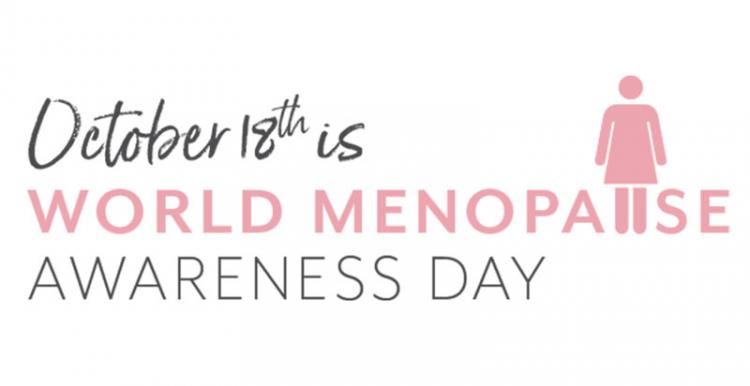World Menopause Day - Bone Health

The information in this article is taken from the International Menopause Society.
Bone health
Bone is living tissue with its own blood and nerve supply. The core of bone is strong enough to resist fracture when falling from your body height but is light enough to move easily. A healthy skeletal structure keeps your body intact.
Bone renews itself constantly. Cells in your body remove the old bone and replace it with new bone. In healthy bone, before menopause, the production of new bone happens more than the removal of old bone. The opposite happens after menopause when ovaries stop the production of the hormone estrogen. This leads to increased removal of bone which decreases bone strength. Other age-related changes also impact bone health.
People are living longer and therefore poor bone health is increasing. This can have an impact on day-to-day functioning, quality of life, ability to live independently and life expectancy. This also places a burden on health care systems. Diet, exercise and reducing risk of falling can help maintain healthy bones.
What is osteoporosis?
Osteoporosis is diagnosed when bone health declines and reduces bone strength. Falling can cause a fracture of the forearm, spine or hip.
Osteoporosis does not cause symptoms until a bone is broken, which is why it is referred to as a “silent disease.” Previously, osteoporosis was only diagnosed when a fracture occurred.
Prevention of osteoporosis related fractures is the main reason why we should care about bone health; risk factors help us predict factors. These include:
- A recent fracture
- Low body mass index
- Family history of hip fracture
- Rheumatoid arthritis
- Type 1 diabetes
- Early menopause
- Smoking and abuse of alcohol
- Sedentary lifestyle
- Estimation of bone mineral density by a test called DXA
Health care practitioners will be able to assess these factors to make a risk prediction of fracture over the next 10 years. This may trigger the need for specific medication to restore bone strength before a fracture occurs. Reducing risk of fracture could extend the quality and length of life.
What is sarcopenia?
Sarcopenia is a new concept that incorporates the inevitable loss of muscle mass, muscle strength and performance as we age. When sarcopenia exists as well as osteoporosis, a woman’s risk of breaking a bone is greatly increased.
Keeping your bones healthy
A bone-friendly lifestyle includes the following:
- Optimise dietary intake of calcium by using a calcium calculator (available online). Only supplement with calcium tablets if unable to do so by eating foods rich in calcium such as milk, yogurt, and green leafy vegetables
- Optimise blood levels of Vitamin D. This is closely associated with sunlight exposure but can be measured by a standard blood test. Vitamin D deficiency can be corrected with supplements
- Dietary intake of 1 gram protein per kilogram of body weight per day
- Weight bearing exercise (such as walking) for 30 minutes most days of the week
- Add balance exercises and strength training when possible
- Avoid smoking
- Limit the amount of alcohol you drink
Reducing chances of falling also helps to keep bones healthy. The following could reduce risk:
- Non-slip backings on rugs
- Well-lit walkways
- Avoiding slippery areas, especially ice
- Wearing shoes with rubber soles
- Maintaining the best possible vision
- Asking your healthcare provider whether any of your medications might cause dizziness or increase risk of falling
Are there medical treatments to keep your bones healthy?
For some women, hormone replacement therapy in menopause is very effective in maintaining bone health. A number of other non-hormonal medications have been developed that target keeping bones strong. Such decisions are made on a very individual basis, and you should discuss this with your healthcare provider.


